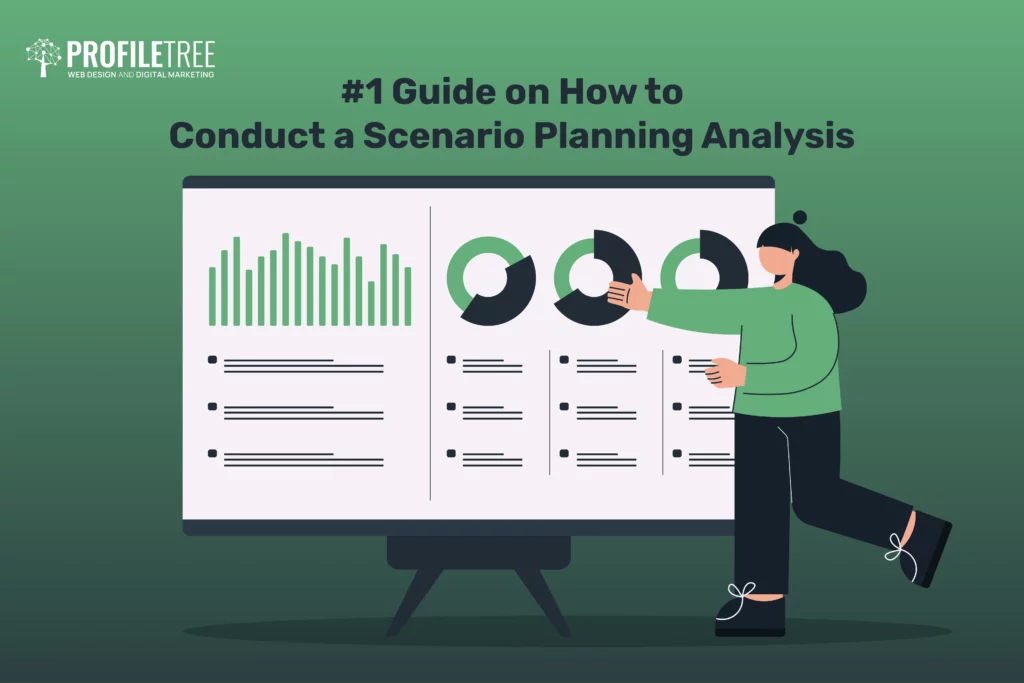As small business owners, we’re constantly navigating the complex landscape of GDPR compliance regulations. One of the most significant changes in data privacy regulations in recent years has been the introduction of the General Data Protection Regulation (GDPR). Aimed at protecting the privacy and personal data of individuals within the European Union, the GDPR has global implications for businesses of all sizes, including ours. Understanding and implementing GDPR compliance is not merely a legal obligation, but it also signifies to our customers that we value and protect their data.

Compliance with GDPR requires a thorough understanding of the data we handle, ensuring we respect and enforce the rights of data subjects, and implementing strong data security measures. A GDPR compliance checklist serves as a vital tool for us to work through the necessary steps systematically. For small businesses in particular, this checklist is essential to help streamline the process, ensuring we cover all the bases without being overwhelmed by the technicalities of data protection laws. With a strategy in place, we can confidently assign responsibilities, manage our data processors, and document our compliance, all while staying updated on continuous developments in GDPR.
Understanding GDPR and Its Relevance
In an increasingly digital world, understanding the General Data Protection Regulation (GDPR) is paramount for small businesses. This framework outlines how companies should handle the personal data of European Union (EU) citizens, regardless of where the business is located, and it has significant implications for privacy and compliance.
Defining GDPR and Personal Data
GDPR stands for the General Data Protection Regulation, a rigorous privacy and security law drafted and passed by the EU. It was implemented on 25 May 2018, replacing the Data Protection Directive from 1995. GDPR specifically addresses the collection, processing, and free movement of personal data. Personal data is defined as any information that relates to an identifiable individual, which can include names, email addresses, IP addresses, and even social media posts.
GDPR Compliance: Why It Matters for Small Businesses
For small businesses, GDPR compliance is not optional; it is a legal requirement if they handle EU residents’ data. Compliance matters because it helps avoid hefty fines and fosters trust with customers who are becoming ever more concerned about privacy. It signifies that a small business respects user data and abides by best practices, an important factor in reputation building.
Ensuring GDPR compliance involves assessing current data practices, understanding the rules of data processing and transfer, and revising policies and procedures to safeguard data adequately. Non-compliance can lead to severe penalties of up to 4% of annual global turnover or €20 million, whichever is greater.
We at ProfileTree understand the intricacies involved in navigating the complexities of GDPR. Our digital strategists, like Stephen McClelland, advise, “Small businesses must embrace GDPR not just as a legal necessity but as an opportunity to refine their data handling processes, which can, in turn, improve customer loyalty and operational efficiency.”
We must incorporate these regulations into our business ethos and demonstrate our commitment to cybersecurity and data protection. While it might seem daunting initially, compliance can become a straightforward process with the right guidance and tools, ensuring that small businesses remain competitive and respected in the digital marketplace.
Analysing Your Data Handling Procedures

Before diving into specifics, small businesses must recognise that analysing data handling procedures is not merely a compliance activity but a strategic step towards safeguarding data subjects’ privacy and streamlining business operations.
Conducting an Information Audit
We begin by undertaking an information audit, a foundational step to gain a comprehensive overview of all personal data our company holds. It involves identifying data subjects and cataloguing the data collected, the purpose for processing this data, where it is stored, and who is responsible for it. This inventory of data creates an accountability framework that assists us in becoming GDPR compliant and remaining GDPR compliant.
- Identify: List all types of data you collect (e.g. customer names, IP addresses).
- Categorise: Classify data by sensitivity and purpose.
- Map Processing Activities: Document who accesses the data and for what purposes.
- Legal Basis for Processing: Ensure every data processing activity has a legal basis.
- Data Protection Impact Assessments (DPIAs): Conduct DPIAs for high-risk processing.
Mapping Data Flows and Identifying Data Categories
Our next step is to map out the data flows within the organisation, which helps us understand how data moves from one point to another and how it is being processed at each stage. This detailed mapping allows us to pinpoint any areas where data protection could be enhanced and ensure that personal data is only accessed on a need-to-know basis.
- Data Flow Diagrams: Use diagrams to visualise data movement.
- Identify Transfer Points: Note where data enters and exits the company.
- Categorise Data: Understand the types of data – operational, financial, personal, sensitive.
- Data Collection Points: Be clear on where and how you are collecting data.
- Inventory of Data Processing Activities: Create a list of all processing activities.
By meticulously analysing our data handling procedures, we ensure that our approach to GDPR compliance is not only methodical and compliant but also adds value to our business by protecting inherently valuable data assets.
Developing a GDPR Compliance Strategy
For small businesses, GDPR compliance is a critical step that assures customers their data is handled with integrity and transparency. A sound GDPR compliance strategy encompasses establishing robust data protection policies and identifying lawful bases for processing personal data.
Creating Data Protection Policies
We must formulate clear data protection policies that outline the measures and procedures in place to protect personal data. This includes how data is collected, stored, accessed, and deleted. Ensuring our policies are easily understood and accessible will not only fulfil GDPR compliance commitments but also engender trust with our clients.
Determining Lawful Bases for Processing
Our business must have a lawful basis to process personal data. GDPR outlines several legal bases, such as consent, contract necessity, and legitimate interest. It is imperative for us to carefully assess our data processing activities and ensure that we have a legitimate and clear legal basis for each. This supports not just accountability but also aligns with the principle of transparency under GDPR.
Assigning Data Protection Responsibilities
In the process of achieving GDPR compliance, it is crucial for small businesses to clearly assign data protection responsibilities within their organisation. This ensures accountability and governance of data privacy practices, as mandated by the regulation.
Appointing a Data Protection Officer
Where necessary, we must appoint a Data Protection Officer (DPO) who is responsible for overseeing data protection strategies and ensuring compliance with GDPR requirements. The role is particularly crucial if we process large amounts of sensitive data or monitor individuals on a large scale. The DPO should be proficient in data privacy laws and regulations, highly knowledgeable about our data processing operations, and able to maintain an overview of our compliance status.
Training Employees on Data Privacy
We ensure our team receives comprehensive training on data privacy matters. This not only includes the basics of the GDPR but also our organisation’s specific policies and procedures regarding data handling. Regular training sessions help to embed a culture of data protection within our team, keeping everyone informed about their responsibilities and the rights of data subjects. An informed workforce is essential to mitigate the risk of data breaches and to uphold our commitment to responsible data governance.
These vital steps in assigning data protection responsibilities fortify our accountability and support our overall GDPR compliance efforts. It assures that everyone in the company understands their role in safeguarding personal data, ultimately protecting our business and the individuals whose data we handle.
Ensuring the Rights of Data Subjects
In the digital age, it’s crucial we treat the personal data of individuals with the utmost respect and care. As such, small businesses must be vigilant in ensuring the rights of data subjects. This encompasses handling access requests efficiently and updating privacy policies and consent procedures to remain transparent and compliant with the GDPR.
Handling Access Requests and Other Rights
The cornerstone of GDPR is to empower data subjects with certain privacy rights. It’s our responsibility to facilitate data subject rights promptly. For instance, when a data subject requests access to their personal data, we must provide it within one month.
Here’s a brief checklist for handling such requests:
- Identify the request: Ensure that any requests from data subjects are identified swiftly and categorised correctly, whether it’s for access, rectification, or erasure.
- Verify the identity: Confirm the requester’s identity to prevent unauthorised disclosure of personal data.
- Locate the data: Search our records to find the data pertaining to the request.
- Respond within the time frame: GDPR obligates us to respond within one month, so we must be efficient in our processes.
Updating Privacy Policies and Consent Procedures
Our privacy policy must be transparent, accessible, and up-to-date. It should clearly communicate how and why we collect personal data, how it’s used, and how we protect it. Similarly, consent procedures must be as clear and straightforward as possible.
Here’s what small businesses need to do
- Review and revise: Regularly review the privacy policy and consent forms to ensure they align with current data protection regulations.
- Clear language: Use plain language to explain how we collect and use personal data, paving the way for informed consent from our clients and customers.
- Highlight changes: If we update the policy, we need to inform data subjects of the changes and, where necessary, obtain new consent.
By adhering to these guidelines, we safeguard individuals’ privacy rights and solidify the integrity of our business practices.
Implementing Robust Security Measures
When we consider GDPR compliance, it becomes essential to address the foundation of data protection: robust security measures. These not only serve to protect personal data but also establish credibility with customers, asserting that their information is in safe hands.
Securing Data Against Breaches
Data breaches can have a devastating effect on companies of all sizes. To prevent unauthorised access or inadvertent data leaks, it’s critical to carry out a range of organisational measures. This entails regular security audits, employee training on data protection, and access control systems that ensure only authorised personnel can interact with sensitive data. By staying vigilant and ready to respond, we reduce the risk of security incidents significantly.
Using Encryption and Other Protective Technologies
Utilising encryption is akin to putting a padlock on personal data; it’s an essential technique for safeguarding information. But it’s not enough on its own. Additional protective technologies should be integrated, such as firewalls to block unauthorised access and antivirus software to shield against malware. Regular updates and patches to these technologies are non-negotiable—they ensure that the protective measures we put in place evolve to counter new threats as they arise.
Every small business must prioritise these security endeavours. Implementing such security measures is a clear demonstration of a business’s commitment to not just compliance but to the safety and trust of its clientele.
Managing Data Processors and Third-Party Compliance
When it comes to GDPR compliance, small businesses must diligently manage and monitor their data processors and third-party vendors. It’s critical to ensure these entities handle personal data in accordance with GDPR regulations.
Establishing Data Processing Agreements
We need to craft Data Processing Agreements (DPAs) with all our data processors. These formal contracts are essential as they stipulate the rights and obligations of each party concerning data protection. A DPA must include specific details about the processing activities, including the nature and purpose of processing, the type of data being processed, and the duration of processing. It should also declare the data processor’s commitment to protecting personal data, reflecting GDPR’s requirements on security measures and data subject rights.
- Key Elements of a DPA
- Nature, purpose, and duration of processing
- Types of personal data and categories of data subjects
- Technical and organisational measures for data security
- Obligations of the data processor regarding GDPR compliance
Auditing Third-Party Vendors for GDPR Adherence
Regular audits of third-party vendors are imperative to ensure GDPR compliance. It’s within our rights to inspect and review how our vendors process personal data. This inspection could include reviewing the vendor’s data protection policies, procedures, and data protection impact assessments. A comprehensive audit helps us evaluate whether they are upholding the standards as per the GDPR and our DPA.
- Audit Checklist Items
- Compliance with data security standards
- Employee training and awareness programs
- Incident response and data breach protocols
- Completeness and accuracy of data processing records
By employing these practices, we hold our data processors and third-party vendors accountable, ensuring robust data protection and GDPR adherence throughout our supply chain.
Documenting Compliance and Keeping Records
Keeping accurate records and documentation is essential for GDPR compliance. Small businesses must systematically record personal data, the purposes of the processing, and details of data retention schedules.
Creating a Data Register and Retention Schedule
Creating a comprehensive data register is a critical step in GDPR compliance. It should detail all personal data your business handles, categorising it by type and sensitivity. It’s essential to map out how data flows through your business, identifying where it’s collected, stored, and whom it’s shared with. A clear data retention schedule is also vital, stipulating how long different data types are held and when they should be securely destroyed. For instance, ProfileTree’s Digital Strategist – Stephen McClelland, advises, “A thorough data register and scheduled reviews are integral to maintaining GDPR compliance.”
Maintaining Documentation for Accountability
Under GDPR, accountability is key. Maintain detailed documentation of your data processing activities to demonstrate compliance if requested. Include legal bases for processing, describe data protection impact assessments and record consent where necessary. Records should reflect the data lifecycle, from initial collection to final deletion. Ensure these documents are stored securely and are easily accessible by those responsible for data management within your business.
Handling Data Breaches and Incident Response
In the fast-paced digital environment, small businesses must be prepared to react swiftly and effectively to data breaches. A solid incident response plan is a necessity, not an option.
Developing a Breach Notification Process
The first step in handling data breaches is to establish a breach notification process. This process should outline the steps to quickly and comprehensively detect data breaches. Once a breach is detected, businesses must have protocols in place to notify all affected parties, including customers, employees, and stakeholders. This must be done without undue delay to meet the General Data Protection Regulation (GDPR) requirements.
- Initial Detection: Identify the signs of a breach and have a system in place for immediate alert.
- Assessment: Quickly evaluate the scope and impact of the breach.
- Notification: Inform affected individuals, detailing what data was involved and protective measures they can take.
Coordinating with Supervisory Authorities
When a data breach occurs, it’s crucial to coordinate with the relevant supervisory authority. This should happen not later than 72 hours after becoming aware of the data breach, as stipulated by the GDPR. If the notification to the supervisory authority is not made within 72 hours, it must be accompanied by reasons for the delay.
- Report to Authorities: Contact the appropriate supervisory body with detailed information about the breach.
- Follow-up: Engage in further dialogue as necessary to comply with ongoing investigations or remediation efforts.
A comprehensive incident response plan will help contain and manage the situation, ensuring transparency and maintaining your business’s integrity. Establish these procedures in advance and train your team regularly to deal with potential breaches effectively.
Staying Updated with GDPR Developments

In the fast-evolving world of data protection, staying abreast of GDPR developments is crucial for small businesses. Keeping up-to-date ensures compliance and effectively harnesses new technologies.
Monitoring Regulatory Changes and Guidance
It’s essential for us to monitor changes to GDPR regulations actively, as amendments and new guidelines can impact how we handle data. The Supervisory Authority regularly publishes updates and detailed guidance to aid compliance. Small businesses should establish a routine to check these updates and decipher them into actionable changes for their practices. This might involve subscribing to official newsletters or working with consultants who specialise in data protection laws.
Adapting to New Technologies and Practices
The advent of new technology poses both challenges and opportunities for GDPR compliance. We must evaluate and integrate these technologies into our data protection framework responsibly. Tools for automated data processing, for instance, must be scrutinised for compliance with GDPR. Additionally, practices such as Artificial Intelligence (AI), machine learning, and Internet of Things (IoT) raise considerations around consent and data rights. Adapting our protocols as we deploy these innovations ensures ongoing compliance and leverages their benefits efficiently.
Small businesses should invest in training and resources to comprehend the implications of new technologies on data privacy and security. Embracing new methods and operational changes with a focus on GDPR can lead to improved practices that safeguard customer data more effectively.
Adjusting to technological advancements and regulatory changes is a continuous process, demonstrating our commitment to upholding high data protection standards.
Frequently Asked Questions
We’ve gathered the key questions you’re most likely to ask as you embark on ensuring that your small business is compliant with the General Data Protection Regulation (GDPR). You must understand these requirements to avoid potential penalties and to safeguard your customers’ data.
What essential steps should a small business follow to ensure GDPR compliance?
Every small business should start by understanding the personal data it processes and determining the legality of its processing. Before collecting individuals’ data, it’s necessary to gain explicit consent from them. Moreover, maintaining clear data protection policies and ensuring that all staff are trained in GDPR compliance is a must.
Which documents are essential for a small business to maintain GDPR compliance?
Key documents include a Data Protection Impact Assessment (DPIA), Records of Processing Activities (RoPA), and privacy notices that are easily accessible to data subjects. Another essential requirement is to have written contracts with any data processors you may use.
Can you outline the primary responsibilities of data controllers under GDPR for small businesses?
As data controllers, small businesses must ensure that personal data is processed lawfully, transparently, and for specific purposes. Controllers are also responsible for the security of the data, implementing measures to protect against unauthorised or unlawful processing.
For GDPR purposes, how should small businesses handle data subject access requests?
When individuals exercise their right to access their data, a small business must provide a copy of the personal data, free of charge, in an electronic format if requested, and within one month of the request.
What constitutes a data breach under GDPR, and what protocols should small businesses have in place?
A data breach involves unauthorized access to or loss of personal data. Small businesses must have protocols to quickly identify and assess the risk of such breaches and report them to the appropriate supervisory authority within 72 hours, where feasible if they pose a risk to individual rights and freedoms.
How frequently should small businesses review and update their GDPR compliance processes?
It’s prudent for small businesses to review and update their GDPR compliance processes at least annually or whenever there is a significant change in the business or the regulations to ensure ongoing compliance. Regular reviews and updates will help adjust to changes and avoid any compliance oversights.


